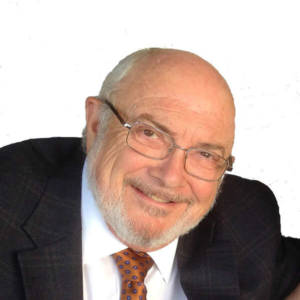What’s Next?
As 2021 winds down it is time for some reflection and some contemplation. What have we been able to get done in 2021 and what is next for us in 2022?
There has been a lot of confusion this year, wouldn’t you say? Politically, economically, and socially. Perhaps many of us ourselves have been confused. At Learning Without Scars we have been very busy.
- We received our IACET Approved provider accreditation.
- We revamped our website.
- We expanded on the Resources available to our followers.
- We introduced Podcasts to our audience.
- We added more Contributors to our blogs and podcasts.
- We created a Quarterly Newsletter.
- We created Audio Learning in multiple languages.
- We rounded out our Subject Specific Classes at 108 subjects available.
- We rounded out our Job Function Assessments at 18 available.
- We made available all of our Job Function Assessments in French and Spanish.
- We made our Parts Subject Specific Classes in French.
- We create Partnerships with Service Providers, Associations and Consulting Groups.
Now that is a Dozen Items to contend with and it is a list that we take a lot of pride in sharing with you. Ross Atkinson has been a large part of this work and we are most appreciative of having him participating with us in our business. I would like to extend our most sincere thanks to Norma Robbins and Louise Duranleau for their work in providing us the translations and audio tracks for the job function assessments and subject specific classes. And finally, to Caroline Slee-Poulos for her untiring work on working with IACET and completing our accreditation after nearly three years of work. My thanks to all of you.
Yet there are miles to go before we rest.
- In 2022 we expect to complete all classes in Spanish, French and English.
- We are modifying all subject specific classes to provide multiple quizzes in each class. These quizzes are aimed at improving learning and knowledge retention.
- We are working with Industry Associations to provide their members access to all of our learning products.
- We are working with Equipment Manufacturers to provide training to their dealership field personnel
- We are working with Systems Suppliers to provide training to their sales teams and support personnel.
- We will start working with Technical and Vocational Schools to introduce our subject specific classes into their curriculum for mechanical and technical training.
- We will be introducing new Products in the Learning area; – new Subject Specific Classes and more Job Function Assessments
- We will be adding new Zoom Offerings with panels of subject matter experts providing discussion on specific subjects and specific books that we are discussing.
- We will be looking to creating an industry wide Job Certification Program.
- We will accelerate our marketing activities with email blasts, e-books and snail mail programs.
- We will continue to improve the depth and breadth of our reporting to assist our clients in keeping track of the progress of their employees who are enrolled in LWS products.
- We will closely monitor our compliance with IACET requirements and keep them current with our activities.
While we are getting all of that done, we also intend to have thousands of individuals take Job Function Assessments and enroll in Subject Specific Classes.
We would not be in the position we are now, of being the supplier of the most comprehensive list of training products and employee development programs in the industry, were it not for the invaluable assistance we have received from you, our clients. Your suggestions and questions are all taken seriously and without your input and involvement we would never have gotten this far down the road. From our start with Quest Learning Centers in 1994, which provided Classroom Programs and Webinars, to Learning Without Scars, which is focused on Internet Based Learning we have depended heavily on your support.
Our purpose as a business is very simple.
We provide complementary resources to assist each individual to find their potential with blogs, podcasts, audio learning, suggested reading lists, newsletters and job function assessments. Then we give each person a pathway to achieving their potential through the use of Skill Level Pathways. To the thousands of you who have taken assessments and classes with us we say thank you. We know you are making a difference in your lives both personally and professionally through your commitment to excellence. We wish you all the success that you are dreaming about in your life. Your individual happiness is a true sign of a successful life. Thank you as well.
I want to close this blog, our last for the year, with a quotation from our Mascot, “Socrates.”
Socrates Says – Employ your time in improving yourself by other men’s writings, so that you shall gain easily what others have labored hard for.
The Time is Now.


